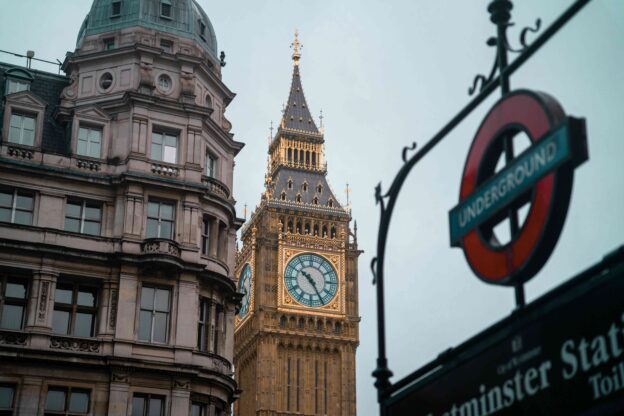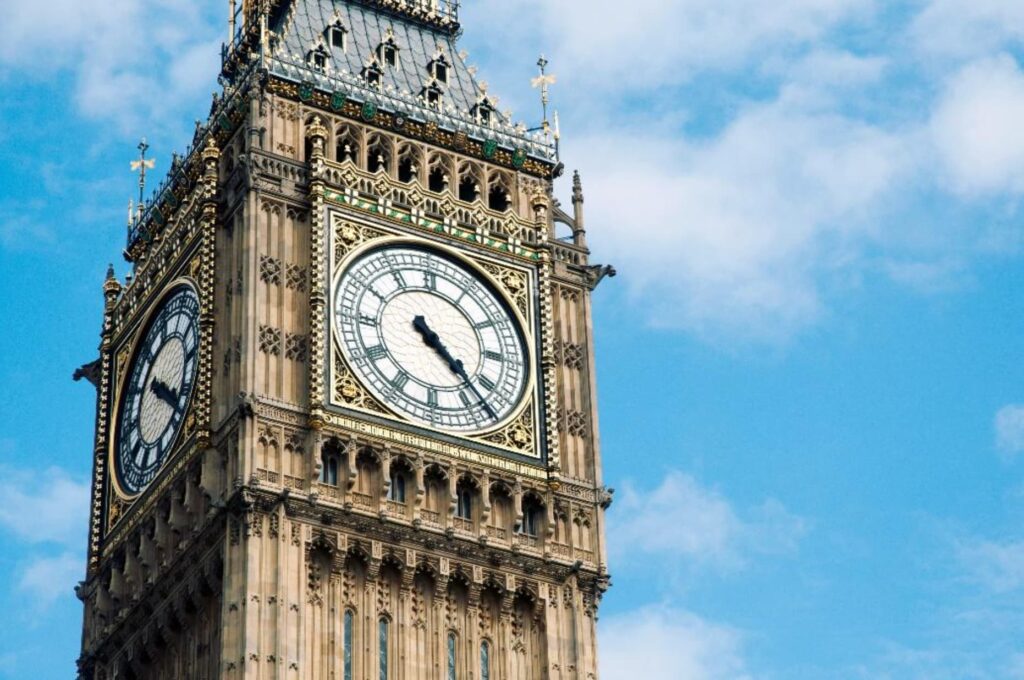
Monthly Archives: October 2024


Labour’s new era for agriculture: Can political stability drive agri-tech innovation?
GK Senior Adviser James Allan analyses the government’s agriculture policy plans and the opportunities that could arise for investors.
With the Labour government now in power, some may wonder if the food, farming and agriculture sectors are about to see a major shift – a shift from being an important constituent of the then Conservative administration of 14 years to lower down the political list of priorities within Labour’s “mission led” government.
The Autumn Budget on 30 October will partly address this concern and end the speculation about potential changes to agriculture property relief and Defra’s agricultural budget. But with a Party of a different political hue now occupying the corridors of power, it’s worth considering whether Labour’s pro-growth messaging of “political stability” to attract private sector investment extends to the food, farming and agriculture (FFA) sectors, and if so, to what extent.
Why Labour must harvest more than just political stability
To attract private investment, ‘political stability’ alone is not sufficient – it needs to be backed up by policy substance and public investment, and with long-term strategic thinking. From aquaculture to viticulture, solar farms to biodiversity, food pricing and standards to foods high in fat, salt and sugar, there are many agendas and issues at play. These will all be playing out against a political backdrop with a renewed sense of momentum, a government with a greater willingness to intervene in the name of public health, an entire mission focused on decarbonisation, and a tight fiscal environment impacting the potential for significant public investment.
The first 100 days for the new government have proved that governing isn’t easy. Political pinch points and missteps aside, a common thread in the criticisms levelled against Labour ministers has been the absence of a defining vision for the sector to provide the framework for policy thinking and development; not least for food security which is set to become one of the defining political issues of the parliament. Without this overarching vision for the sector, the ability for businesses to plan their own investment and growth strategies becomes much more difficult and limits the ability of government to ‘crowd in’ private capital to drive growth.
The sowing of early seeds positive for UK investors
There are a few positive and recent developments of note. First, the Farming Minister, Daniel Zeichner, has confirmed the government’s intention to introduce secondary legislation which will bring to reality the regulatory regime of the Genetic Technology (Precision Breeding) Act 2023.[1] This will help to simplify the authorisation process for bringing new products to market from 1o years to an estimated 12 months.[2] Investors should note the government’s familiar caveat of “as soon as parliamentary time allows” which means the introduction of secondary legislation is unlikely to be imminent and will compete with an already packed legislative calendar. Speeding up routes to market will be welcomed by investors backing early-stage or growth-stage companies involved in gene editing, crop efficiency technologies, or those innovating in climate-resistant crop varieties. The streamlined regulatory environment lowers barriers, creating the potential for significant returns more quickly. Zeichner has also confirmed 43,000 Seasonal Worker visas for the horticulture sector and 2,000 for the poultry sector for 2025. Accompanied by a few additional measures to simplify free-range labelling requirements, this signals that the Defra ministerial team is actively listening to the sector and willing to flex policy to meet operational challenges and remove barriers to growth.[3]
Secondly, the government has secured access to the US market for British beetroot farmers, boosting export opportunities and attributed to the efforts of DEFRA’s agri-food attaché in the US.[4] This establishes an interesting precedent for securing market access outside of more formal and comprehensive free trade agreements, and creates attractive investment opportunities in companies that produce export-ready, high-quality British agricultural goods. Crucially, produce by produce access deals averts the political tightrope of negotiating comprehensive trade deals, not least one with the US which has long been the envy of previous Conservative Prime Ministers. For investors and argi-businesses on the lookout for export opportunities, engaging with DEFRA’s eleven attaches located in British embassies and consulates in Canada, Mexico, Brazil, Kenya, The Gulf, India, Japan, China, Thailand and Vietnam will be important to replicate this success.
Thirdly, there is recognition in government of the long and fraught dissatisfaction among farmers concerning the future viability of the agricultural sector.[5] The Labour ministerial team perceives a lack of confidence among farmers as the rationale for needing to optimise Environmental Land Management schemes as part of a wider new deal for farmers. The precise details of this new deal have yet to be clarified but the government has signalled a focus on:
- Trade deals undercutting low welfare and low standards
- Maximising public sector purchasing power to back British produce
- A land-use framework to balance nature recovery and long-term food security
A latter focus on food security will be important for investors seeking opportunities which align with Labour’s aim to make the UK more self-reliant in the food and energy sectors, but especially where technological innovation contributes to more efficient and resilient farming processes and produce. Defending their record in government and playing in safe political territory, this was a focus of a recent opposition day debate in Parliament where several Conservative MPs made the case for greater public investment in new farming technologies to safeguard the nation’s food supply.[6] However, as noted by DEFRA Secretary, Steve Reed, the government’s ability to do so is up for consideration in the upcoming Budget and next year’s Spending Review and therefore competes with other public spending priorities.
A wet start for the farming sector
This year’s harvest of the five key crops – wheat, winter and spring barley, oats and oilseed rape – saw a decrease of 15% compared to the 2023 harvest with an estimated loss of £600m in revenue for English farmers due to considerable wet weather.[7] The impact has extended beyond these core crops with a south Devonshire winemaker reporting a 70% decrease in expected volumes compared to 2023 and another winemaker noting heightened disease pressures due to constant rain. For the British viticulture industry, the wet weather year of 2024 follows a boom in capital investment and overseas wine producers buying into the UK as a hedge against climate change. Rural and farming communities might not be this government’s traditional supporter base but neglecting the sector – with its sub-sector growth gems like viticulture – risks undermining long-term food security and economic growth not just farmers but the broader economy and consumers alike.
[1] DEFRA, New legislation to support precision breeding and boost Britain’s food security (Sept-23 link)
[2] DEFRA, Impact Assessment – Impact Assessment – Genetic Technology (Precision Breeding) Bill (Mar-22 link)
[3] DEFRA, Government provides certainty to horticulture and poultry businesses (Oct-24 link)
[4] DEFRA, British beetroot growers to put down roots in US market (Sept-24 link)
[5] DEFRA, Government to restore stability for farmers as confidence amongst sector low (Aug-24 link)
[6] House of Commons, Opposition day debate on farming and food security (Oct-24 link)
[7] Energy & Climate Intelligence Unit, England has second worst harvest on record with fears mounting for 2025 (Oct-24 link)

GK Strategy Briefing – October 2024 Budget
GK Strategy Pre-Budget Briefing: GK Associate Hugo Tuckett takes a look at what we’re expecting to see in the government’s first Budget on Wednesday 30 October
Political Context
The government will hold its first budget on Wednesday 30 October. Ministers will want to use it as an opportunity to reset the political agenda given the turbulence of recent weeks which has seen the Prime Minister lose his Chief of Staff Sue Gray and pay back more than £6,000 in gifts after a row over donations.
Labour’s election manifesto was light on tax and spend measures. The Party identified four revenue raising levers to utilise to fund its reforms to public services. These are: further reforming non-dom tax loopholes, applying VAT and business rates to independent schools, ending the carried interest tax loophole and increasing stamp duty on purchases of residential property by non-UK residents. The Party estimated this would raise just over £7 billion in additional revenue for the exchequer.1 The manifesto also included a commitment not to increase national insurance, the basic, higher or additional rates of income tax, or VAT. Given these represent approximately two-thirds of tax revenue, this forces the Chancellor to focus on maximising returns from a series of smaller pots to fund Labour’s spending priorities.
In July 2024, the Treasury completed an audit of public spending which identified a £22 billion black hole in the public finances. The government said this represents an in-year overspend and does not constitute an estimate of how much additional funding might be allocated to departments moving forward or how much additional borrowing may be required.2 The Chancellor will therefore have to pursue a series of tax rises to close this gap in the public finances and support additional investment in departments moving forward.
Potential Measures
The following list sets out a series of measures that GK has assessed are likely to be included in the upcoming budget:
Employer pension contributions: The pushback the Chancellor received following her decision to end winter fuel payments for pensioners not in receipt of pension credit (which cut the relatively small amount of c.£1.5 billion from the government’s annual welfare bill) reduces the likelihood of her pursuing a large number of small tax rises to balance the books. Instead, the government is likely to target 3-5 measures which collectively bridge the gap in the public finances. GK’s assessment is that the Chancellor is likely to reform the NICs treatment of employer pension contributions by levying employer NICs on employer pension contributions. If levied at the full rate (13.8%), this would raise around £17 billion per year. This covers approximately three-quarters of the £22 billion figure identified in the Treasury’s audit of public spending and would end what the Institute for Fiscal Studies (IFS) describes as “the generous NICs treatment of employer pension contributions… [which are] opaque and poorly targeted.”3
Inheritance tax: The government is likely to close several loopholes in the inheritance tax system. Politically, Labour is not as sensitive about reforming inheritance tax as previous Conservative administrations. This provides the Chancellor with a freer hand to make changes without encountering pressure from her Party’s backbenchers. Reforms to the inheritance tax system are likely to include ending reliefs for business assets (including those held in the AIM market), agricultural property, and gifts to charities. This is estimated to raise c.£2.4 billion in revenue.4
Capital gains tax: We expect the Chancellor Rachel Reeves to increase rates of capital gains tax. This is, however, likely to constitute a shift of only a few percentage points given concerns about maintaining the UK’s international competitiveness. Unlike the Conservatives, Labour did not commit to freezing capital gains during the election campaign. As the Party has ruled out increases to income tax, national insurance and VAT, it has few levers to pull to raise revenue to fund its spending commitments. Capital gains tax is an attractive revenue raiser for the government given it is paid by a small number of individuals each year (who broadly sit outside Labour’s electoral base) and it fits with its wider commitment not to raise taxes on “working people”.5
Carried interest: Reforms to the tax treatment of carried interest which would see rates align with the higher rate of income tax (45%) are unlikely to be contained in the upcoming budget. Instead, we expect a compromise agreement to be reached whereby rates are lifted, albeit not significantly, to fulfil the Party’s manifesto commitment to “close this loophole”.6 Although it was one of Labour’s few tax raising measures it committed to pre-election, internal Treasury analysis has now revealed that the policy could have a “net cost to the exchequer”. This is because wealthy individuals could choose to leave the UK rather than pay the money and deter investment. Treasury civil servants estimate the rise could cost as much as £350 million per annum after five years.7
Debt measure: The Chancellor is likely to reform the UK’s debt measure to support public investment in infrastructure projects. Speaking at Labour Party Conference in October 2024, Rachel Reeves said that “it’s time the Treasury moved on from just counting the costs of investment in our economy to recognising the benefits too.” This suggests that the Treasury’s fiscal rules will be altered to allow the government to offset “assets”, against the wider national debt, thereby freeing up more money for investment. This is likely to amount to c.£50 billion worth of additional headroom.8 Importantly, the move will not allow Reeves to increase day to day spending, as Labour has said this must be met entirely from annual tax receipts.
1 Labour Party, Change, 13.06.24
2 HM Treasury, Fixing the foundations: public spending audit 2024-24, 02.08.24
3 IFS, Raising revenue from reforms to pensions taxation, 11.09.24
4 IFS, Raising revenue from closing inheritance tax loopholes, 18.04.24
5 Financial Times, IFS urges Labour Party to make ‘serious reforms’ to capital gains tax, 06.10.24
6 Labour Party, Change, 13.06.24
7 The Times, Labour poised for U-turn over tax plans for investment gains, 04.10.24
8 The Times, Rachel Reeves hopes for £50bn windfall with fiscal rules rejig, 26.09.24

Post-Budget Webinar with the Rt Hon David Laws
GK Strategy Event
GK Strategy would like to invite you to: Post-Budget Webinar with the Rt Hon David Laws
The webinar will focus on the measures contained within the Budget, including what it means for the government’s policy priorities, businesses and the investment community moving forward, as well as what happens next.
There will be an opportunity for a Q&A at the end of the session.

Keynote speaker:
The Rt Hon David Laws – Former Chief Secretary to the Treasury and Minister of State for Schools
Thursday 31st October | 9am-10am
(the briefing will begin at 9:05am)
The event will be held virtually. Please RSVP by emailing events@gkstrategy.com for joining details.
The Rt Hon David Laws is a strategic adviser to GK with a wealth of experience across the policy and politics of education and skills.
Between 2001 and 2015, David served as the Liberal Democrat Member of Parliament for Yeovil. He held various senior frontbench positions for the party in Parliament, including as its spokesperson on schools, children and families, before joining the Cabinet as Chief Secretary to the Treasury in the Coalition Government. From 2012 to 2015, David was the Minister of State for Schools in the Department for Education.
He has served as Executive Chairman of the Education Policy Institute and the Education Partnerships Group. In December 2022, David was appointed chair of Energy UK, a post he started in early 2023.

Roundtable discussion: Local authority funding and its impact on the future of social care
Images: Seb Wright Media
For a roundtable event held in July 2024, hosts Hannah Haines (Head of Healthcare Consultancy, Christie & Co), Michâela Deasy (Head of PR & Comms, Compass Carter Osborne) and Lizzie Wills (Senior Partner & Head of Private Equity, GK Strategy) were joined by some of the biggest female names in the UK social care sector.
The roundtable brought together operators, lawyers, investors and sector experts, all of whom share a passion for quality healthcare and for driving an increased awareness of the challenges faced by operators as a result of funding challenges across the country.
Below are some of the key highlights from what was discussed around local authority funding and its impact on the future of social care.
According to the Local Government Information Unit, 50% of local authorities (LAs) have reported that they are likely to be bankrupt in the next five years, with 9% predicting they would be bankrupt in the next 12 months. This is already the case for a number of LAs, including Birmingham. These struggles are not going to be resolved without fundamental reform – of how services are delivered at a local level, or how they are funded.
To address the funding challenges they are facing, most LAs have identified areas to make direct cost savings. For example, many have confirmed that they will make budget cuts relating to parks and recreational spaces. Although this may not directly impact the social care sector, it could end up affecting the mental health of the communities that rely on these facilities. Meanwhile, 16% of LAs said they are looking to reduce spending in adult social care, 12% in children’s care services, and 10% in SEND, though statutory services will be better protected from funding cuts.
… For the full article on the Christie & Co website, click here.
To find out more about the team’s next roundtable event, contact Michâela Deasy: michaela@compasscarterosborne.com
